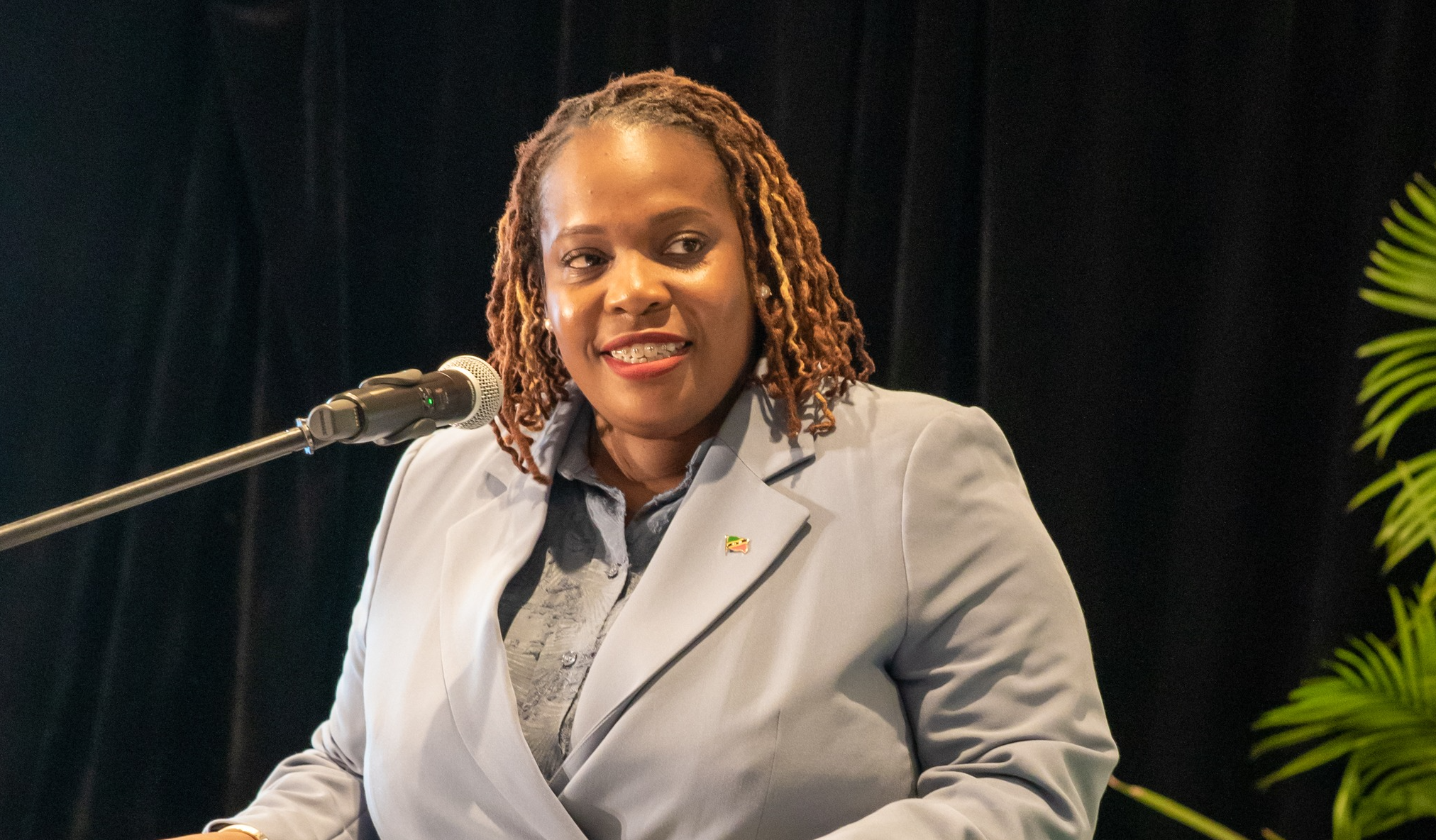Dr. Clarke Welcomes International Delegates to GSIS in Saint Kitts and Nevis, Advocating for Climate Action
The Global Sustainable Islands Summit (GSIS), held in Basseterre, St. Kitts, from May 27-29, 2025, served as a crucial platform for island nations worldwide to address the pressing challenges of climate change and forge a path towards sustainable development. Hosted by St. Kitts and Nevis in partnership with Island Innovation and the Republic of China (Taiwan), the summit brought together a diverse array of delegates, representing islands from across the globe, united by their shared vulnerability to climate change and their commitment to building a sustainable future. The opening ceremony, presided over by the Honourable Dr. Joyelle Clarke, Minister of Sustainable Development, Environment, and Climate Action, set the tone for the summit, emphasizing the urgency of climate action and the need for tangible solutions.
Dr. Clarke’s welcoming address underscored the significance of the summit as a moment of collective action. She highlighted the unique position of island nations, stating that their intimate understanding of the climate crisis fuels their aggressive pursuit of sustainable development agendas. The summit, she stressed, was not merely a forum for discussion, but a critical opportunity to translate dialogue into concrete action. The goal was to move beyond simply sharing experiences and networking, and instead focus on developing tangible outcomes, forging strong partnerships, and creating actionable solutions to address the specific challenges faced by islands. This focus on practical results, she emphasized, was essential for protecting lives, livelihoods, ecosystems, and the future generations of island communities.
The Minister extended a special invitation to the youth delegates, recognizing their vital role in shaping the future of sustainable development. She encouraged them to share their insights and experiences from the Island Youth Forum, emphasizing the importance of including their voices in the broader discussions. This intergenerational dialogue, she implied, was critical for developing comprehensive and effective sustainability strategies. The presence of youth delegates underscored the long-term vision of the summit, highlighting the need for solutions that not only address current challenges but also ensure a sustainable future for generations to come.
The GSIS served as a critical meeting point for island leaders, innovators, and stakeholders to collectively address the interconnected challenges of climate resilience, sustainable development, and inclusive growth. The summit’s agenda focused on developing practical strategies to mitigate the impacts of climate change, build resilience within island communities, and promote sustainable economic development. The diverse representation of island nations fostered a rich exchange of knowledge and best practices, allowing participants to learn from each other’s experiences and collaborate on innovative solutions.
The overarching theme of the summit was the urgent need for immediate and collaborative action to address the climate crisis. Island nations, being particularly vulnerable to rising sea levels, extreme weather events, and other climate-related impacts, are at the forefront of this global challenge. The GSIS provided a platform for these nations to advocate for stronger global climate action and to share their innovative approaches to adaptation and mitigation. The summit also emphasized the importance of international partnerships and collaboration in supporting island nations in their efforts to build a sustainable future.
The Global Sustainable Islands Summit represented a crucial step forward in the global effort to address climate change and promote sustainable development. By bringing together island nations from across the globe, the summit fostered a spirit of collaboration and innovation, paving the way for tangible solutions to the unique challenges faced by these vulnerable communities. The emphasis on practical outcomes, youth engagement, and international partnerships positioned the GSIS as a significant milestone in the ongoing pursuit of a sustainable future for all. The summit’s success lay not just in the discussions held, but in the commitment of participants to translate their shared vision into concrete action, ensuring a resilient and sustainable future for island nations worldwide.
Share this content:












Post Comment